‘New menu rules won’t help people trying to repair their relationship with food’
Your digest of analysis from the British and international press
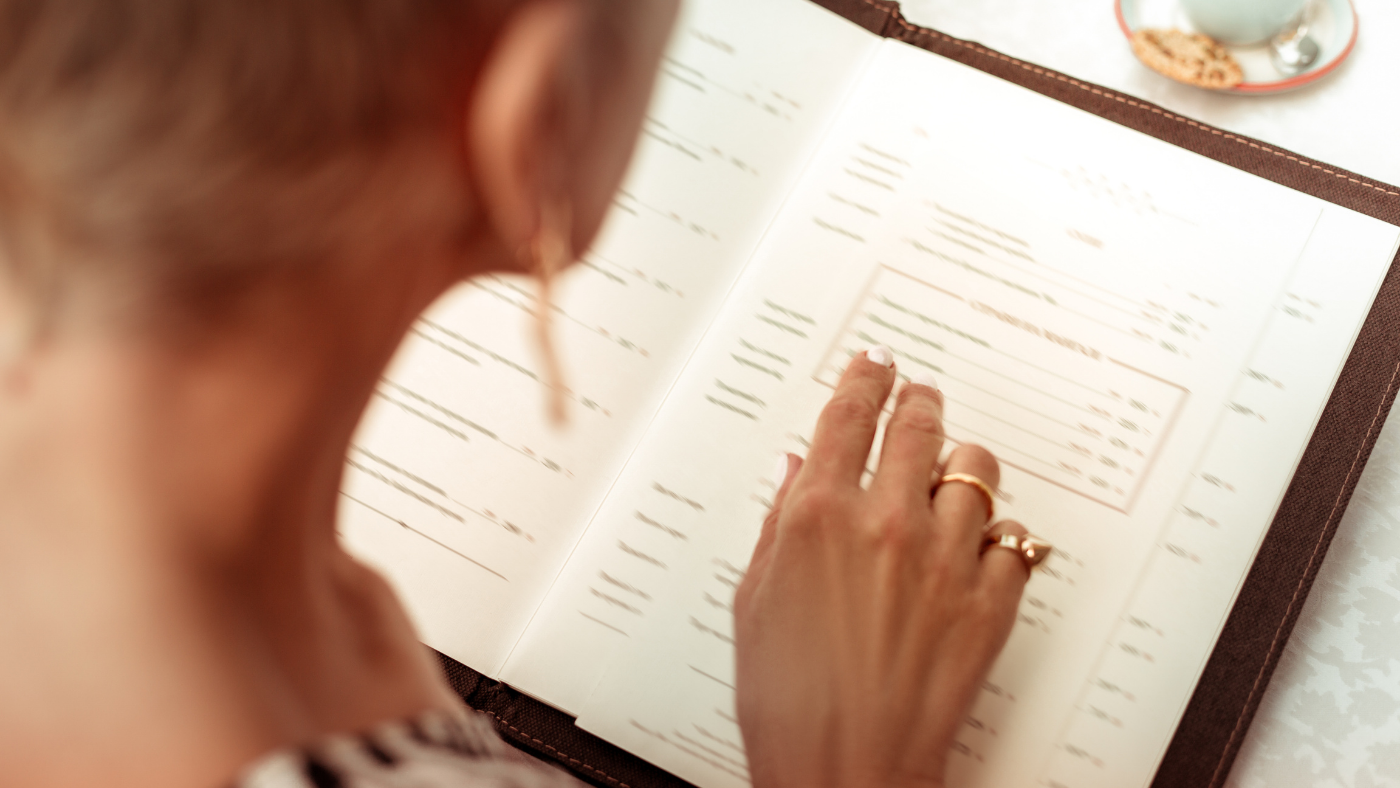
A free daily email with the biggest news stories of the day – and the best features from TheWeek.com
You are now subscribed
Your newsletter sign-up was successful
1. Compulsory calories on menus would’ve made my eating disorder worse
Naomi Bartram in The Independent
On anti-obesity measures
Naomi Bartram spent most of her early 20s “consumed by thoughts of food, exercise and my weight”. Writing in The Independent, she says that new rules requiring larger restaurants, cafes and takeaways in the UK to include calorie counts on their menus “will make dining out even more unbearable” for the estimated 1.25 million people in the UK with an eating disorder. “Only providing calories as the sole, fixed measure of health isn’t accurate or truthful”, she says. A calorie “is just a unit of energy” and everyone’s body is “completely different” to another’s. The government’s anti-obesity strategy doesn’t “heal the nation’s relationship with food, it continues to normalise disordered eating and unrealistic body ideals”. Bartram is “slowly healing” from her eating disorder, but “calories still trigger me”, she says. The new legislation has created “another hurdle for people like me who are trying to repair their relationship with food”.
The Week
Escape your echo chamber. Get the facts behind the news, plus analysis from multiple perspectives.

Sign up for The Week's Free Newsletters
From our morning news briefing to a weekly Good News Newsletter, get the best of The Week delivered directly to your inbox.
From our morning news briefing to a weekly Good News Newsletter, get the best of The Week delivered directly to your inbox.
2. There is now an embarrassment of riches to bring this entitled Tory party down
John Harris in The Guardian
On class privilege
The “defining theme” of Boris Johnson’s premiership “may at last have arrived”, says John Harris in The Guardian. “His government has singularly failed to come up with any kind of coherent narrative”, but now we “have an embarrassment of riches”. “Partygate grinds on”, “massively lucrative Covid contracts have been handed to companies with clear links to Conservatives” and “most spectacularly of all, there is the plunge of Rishi Sunak”. The chancellor was “already making one reputational error after another” before the news of his wife’s non-dom status was made public last week. “The Conservative party has always quietly looked after ultra-wealthy people and put them in positions of power. But it is now being unsettled by the same cultural shifts that are undermining no end of establishment institutions.” The “awfulness” of the Johnson government’s “current image is largely about what privilege looks like in the midst of massively rising living costs”. Politicians can’t “convince people” that they’re “on their side” when the headlines “constantly involve seven-figure sums of money, ‘tax statuses’ and old-fashioned class privilege”.
A free daily email with the biggest news stories of the day – and the best features from TheWeek.com
3. If you thought Russia was bad, just try China
Edward Lucas in The Times
On the ‘real drama’
Imagine the UK’s “academic, media, political and showbiz elites were all deeply in hock to Moscow… and that its propaganda, far from being splenetic and contradictory, was subtle, patient, and effective”, writes Edward Lucas in The Times. Imagine our supply chains, exports and critical infrastructure “were crucially dependent on Russia” – “those are just some of the problems we face with China”, which is a “far more potent and serious adversary than the flailing, ramshackle and stagnant system run by Putin”. In terms of “economic clout”, China wins. “The ambitions are different too. Russia wants to obliterate Ukraine, dominate its neighbourhood and end the American nuclear presence to Europe”. In Beijing, Xi Jinping thinks “China should be the world’s most powerful country and plans to achieve this by 2049” – and its “efforts are far more serious than Russia’s.” Both China and Russia “exploit the same big western weakness: ignorance, arrogance, complacency, timidity and greed” and “now, we are waking up”. The “real drama” is still to come: “the struggle with the Chinese behemoth”.
4. French election: The country is divided
Gavin Mortimer in The Spectator
On a depressing prospect
“Once again” the French presidential race is between Emmanuel Macron and Marine Le Pen – “and for many millions of French that is a deeply depressing prospect”, writes Gavin Mortimer at The Spectator. The writer’s sister-in-law, a “working-class socialist”, rang him “in despair” at “once more being forced to choose between Macron and Le Pen. But it’s her ilk who will decide the outcome of the second round.” The “only age group dominated by Macron was the over 65s” and that is “dangerously unhealthy”. French voters “whose working lives are over”, and who have “comfortable pensions with no mortgage, are content with the incumbent”. Pollster Jérôme Fourquet says France is now divided between “the haves and the have nots”. Macron is favourite to win a second term but it seems “it is going to be very tight between him and Le Pen”. Whoever wins, “they will have to preside over a country that is fractured, fed up and spoiling for a fight”.
5. The Boston Marathon’s brainless bigotry
Bret Stephens in The New York Times
On cultural exclusion
Last week, the Boston Athletic Association (BAA) decided to ban runners from Russia and Belarus competing in this year’s Boston Marathon. In The New York Times, Bret Stephens writes that “superficially, the decision is of a piece with other recent cancellations of Russian performers”. Whether you agree with this, “there’s always a slippery slope when it comes to making cultural choices based on political considerations”. A number of musicians and artists have had performances cancelled in recent weeks, and Stephens asks “why shouldn’t countries do the same thing to American musicians and athletes the next time an American president deploys forces to some place where they hadn’t been invited”. He says “it’s hard to think of any justification for the BAA’s indiscriminate discrimination”. The organisation should “think this one over” and let these athletes compete “for the hope of what their countries might someday become, free from the yoke of their present leaders”.
-
 Political cartoons for February 16
Political cartoons for February 16Cartoons Monday’s political cartoons include President's Day, a valentine from the Epstein files, and more
-
 Regent Hong Kong: a tranquil haven with a prime waterfront spot
Regent Hong Kong: a tranquil haven with a prime waterfront spotThe Week Recommends The trendy hotel recently underwent an extensive two-year revamp
-
 The problem with diagnosing profound autism
The problem with diagnosing profound autismThe Explainer Experts are reconsidering the idea of autism as a spectrum, which could impact diagnoses and policy making for the condition
-
 Triangle-headed aliens touched Goldie Hawn
Triangle-headed aliens touched Goldie HawnTall Tales And other stories from the stranger side of life
-
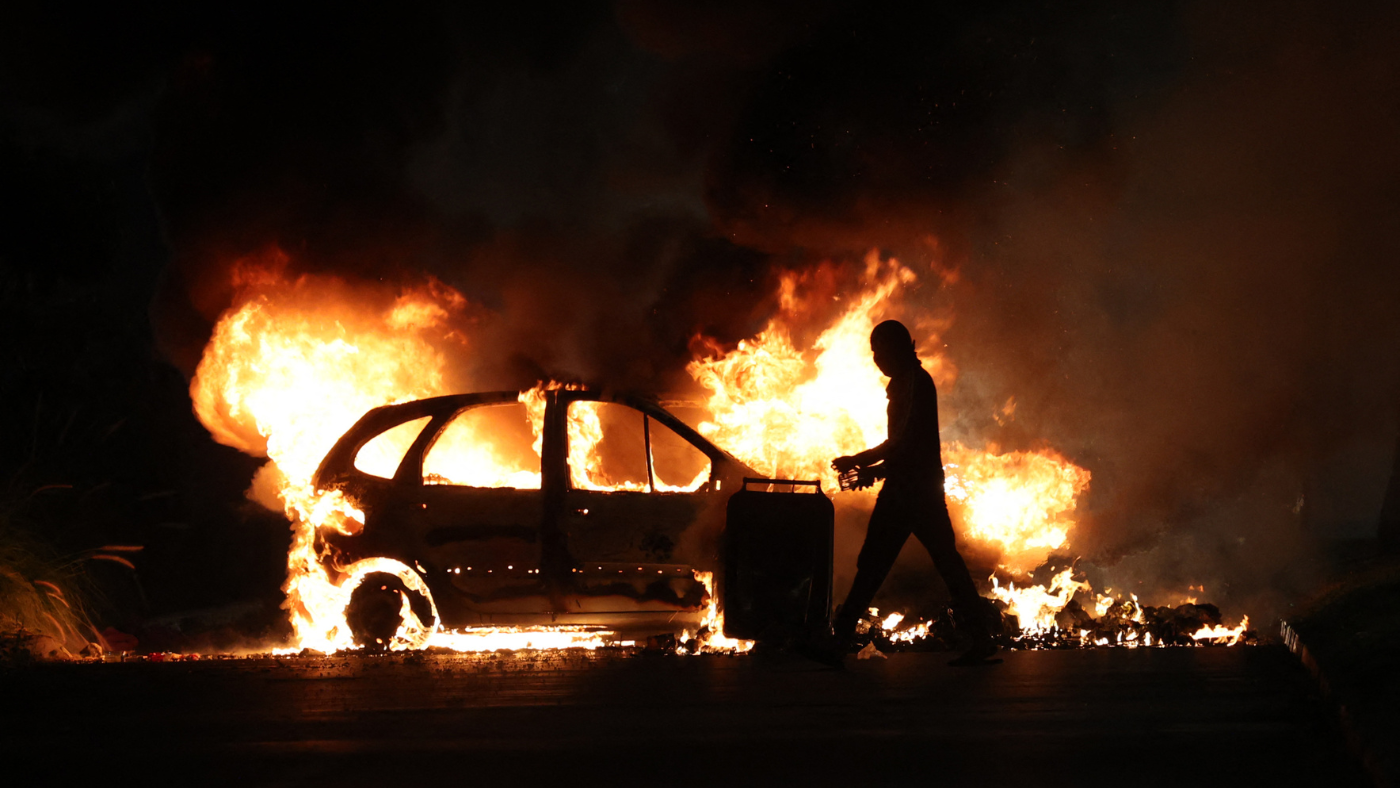 How the world reported French riots over shooting of teenage boy
How the world reported French riots over shooting of teenage boyfeature Violence has ripped through French suburbs in days following death of Nahel M.
-
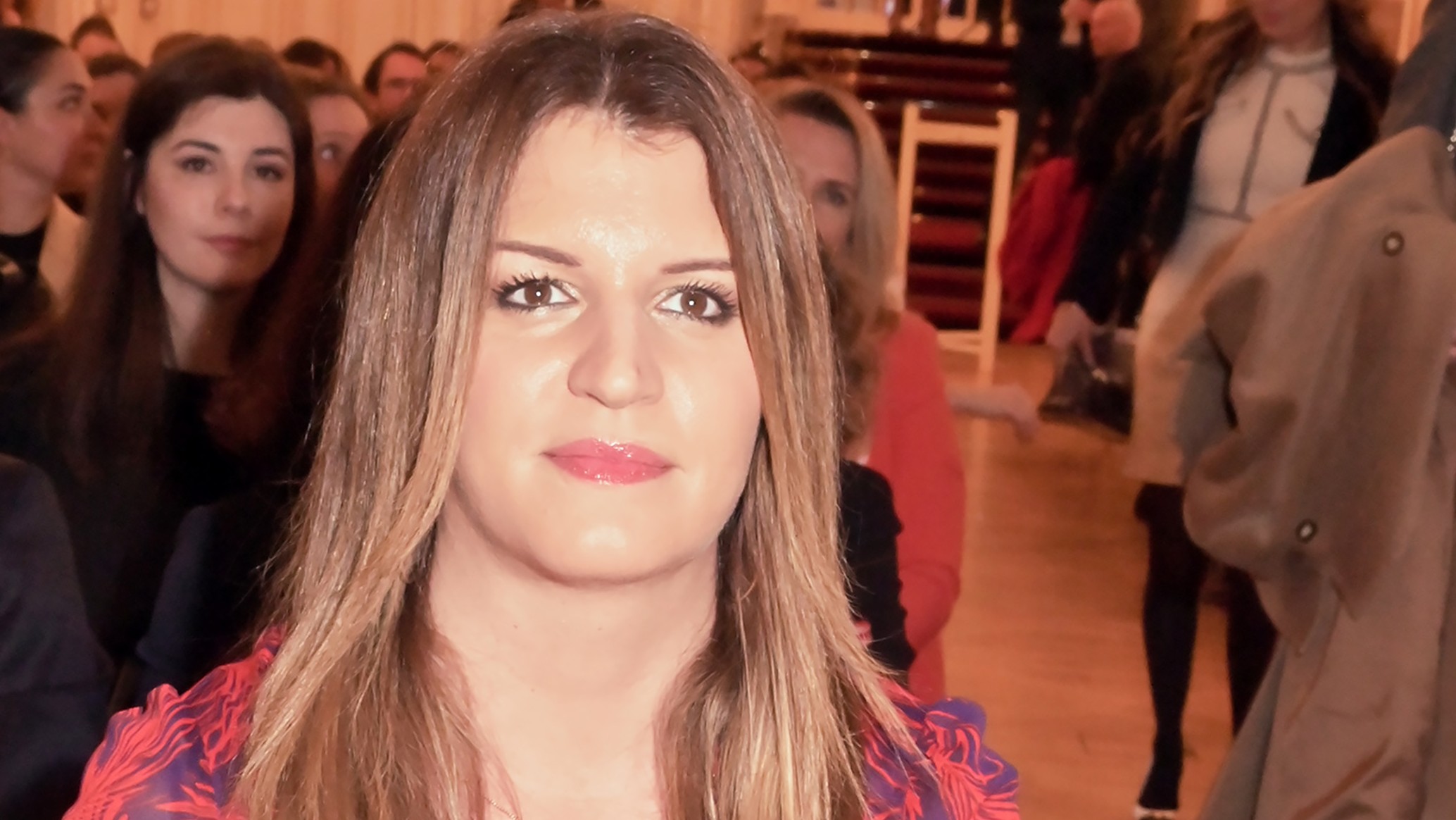 French minister sparks anger with Playboy cover
French minister sparks anger with Playboy coverSpeed Read Marlène Schiappa gave interview on women’s and LGBTQ+ rights – photographed fully clothed in white dress
-
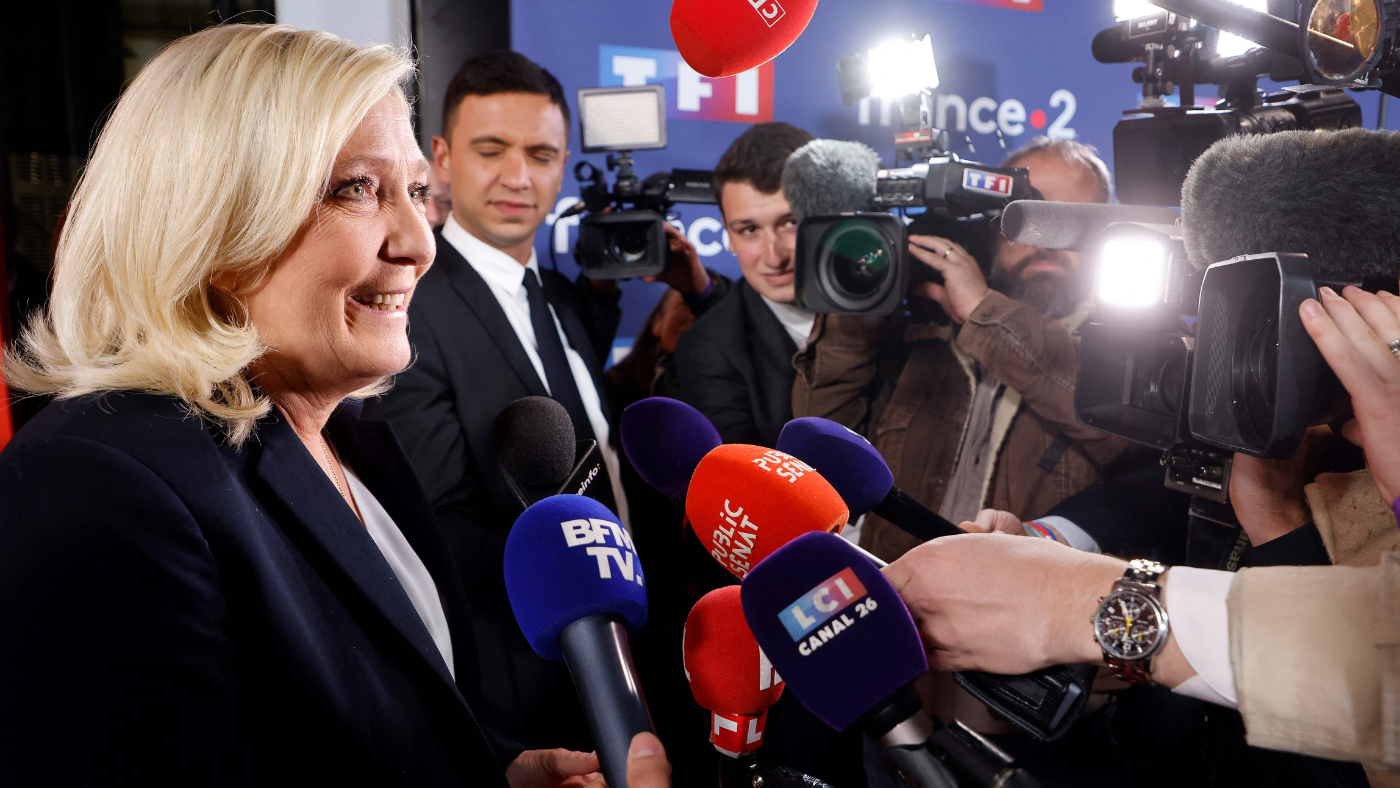 France after Macron: can anything stop Marine Le Pen?
France after Macron: can anything stop Marine Le Pen?Today's Big Question Analysts believe the far-right leader may be the biggest political beneficiary of popular fury over President Macron’s pension reforms
-
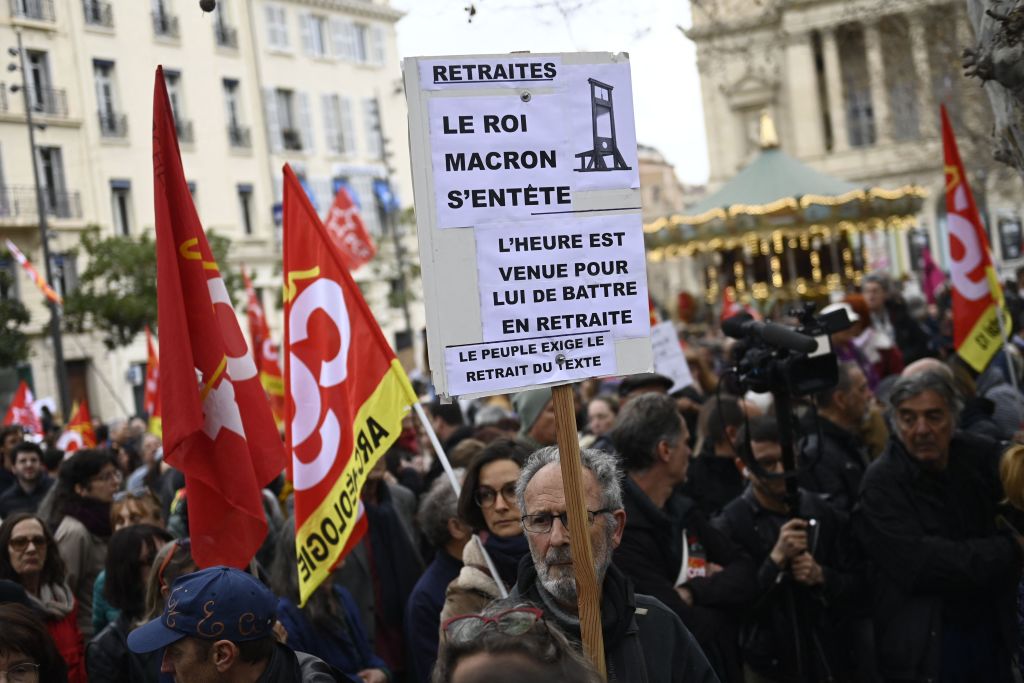 Is France 'on the edge of civil unrest'?
Is France 'on the edge of civil unrest'?Today's Big Question Protests have erupted in response to Emmanuel Macron's decision to unilaterally raise the retirement age
-
 France's pension protests, explained
France's pension protests, explainedSpeed Read President Macron wants to raise the retirement age. French workers say 'non merci.'
-
 ‘The UK’s malaise will not end with the Prime Minister’s exit’
‘The UK’s malaise will not end with the Prime Minister’s exit’Instant Opinion Your digest of analysis from the British and international press
-
 ‘Police tactics are not getting worse, they are simply being filmed’
‘Police tactics are not getting worse, they are simply being filmed’Instant Opinion Your digest of analysis from the British and international press